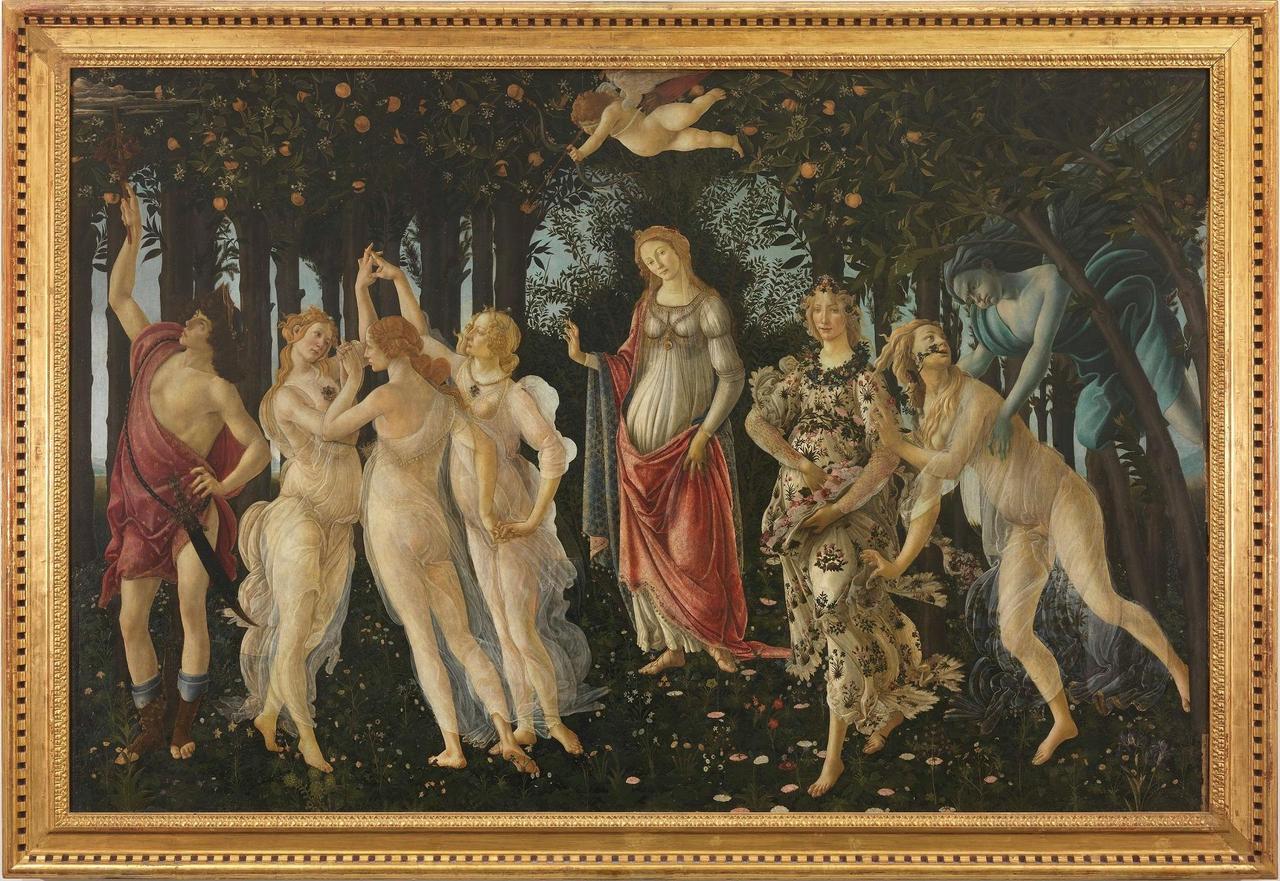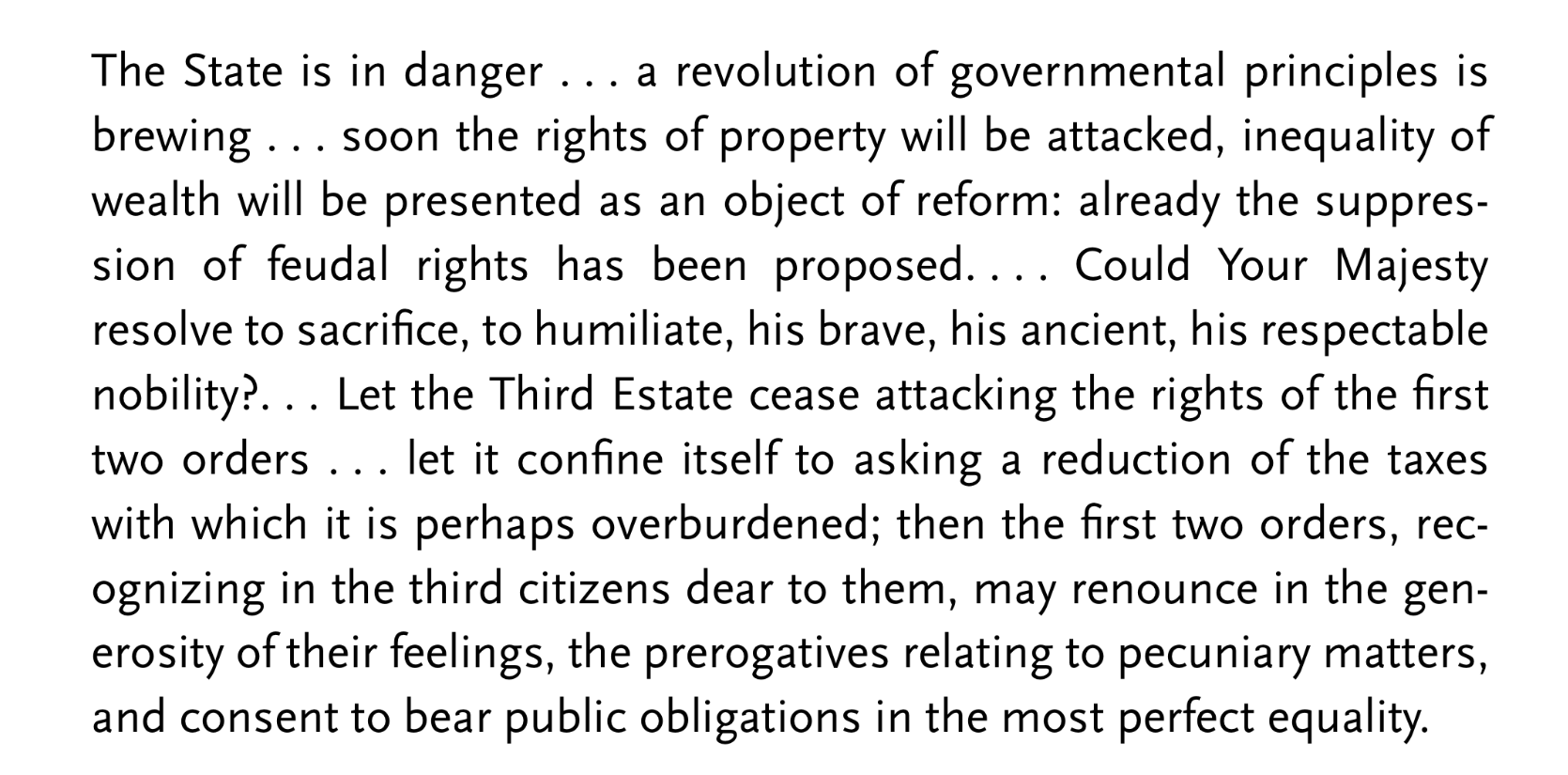തലയ്ക്കുമാത്രമല്ല, അരയ്ക്കും പ്രേമം ചുറ്റിപിടിച്ചിരിക്കുന്ന ഒരു വസന്തകാലം. തലസ്ഥാനത്തിന്റെ പുതിയ നഗരഭാഗത്തെ ഒരു ആഹാരപഞ്ജരമാണ് വേദി. അക്ഷരാപ്തഗണങ്ങൾക്കിടയിലും, അപ്പോസ്ട്രോഫി ഉപയോഗിക്കാനറിയാത്ത യുവതലമുറയിലും തുരഗവേഗത്തിൽ തരംഗമായിക്കൊണ്ടിരിക്കുന്ന ഒരു തകർപ്പൻ വിഭവം ഇവിടെ കിട്ടും - സൂപ്പും കൊണ്ടാട്ടവും! മലബാറിൽ നിന്നും ബിരിയാണിയുണ്ടാക്കാൻ ഡൽഹിയിലെത്തിയ ഒരു ഭക്ഷണവൈദ്യൻ, നാട്ടിൽ നിന്നും കൊണ്ടുവന്ന അരിക്കൊണ്ടാട്ടം ക്രൂട്ടോണിന് (വറുത്ത റൊട്ടിക്ക്) പകരം ടൊമാറ്റോ സൂപ്പിലിട്ടു കഴിച്ച് സ്മരണകൾ അയവിറക്കി. പാത്രം കഴുകാൻ നിയമിച്ചിരുന്ന പരശുരാമൻ ബി.ടെക്., എം.ബി.എ., ഇതിന് ദൃക്സാക്ഷിയായി. തത്സമയം കാലം സ്തംഭിക്കുന്നതായും അണ്ഡകടാഹത്തിന്റെ പാത്രമാവുന്നതുമായിട്ടുള്ള അനുഭുതിയുണ്ടായിട്ടില്ലേ? ഏറെക്കുറെ ആർക്കിമെഡീസിന്റെ യുറേക്ക നിമിഷം - നഗ്നത മറക്കുന്ന, പരമാർത്ഥത്തെ താരാട്ടുന്ന ഉൽകൃഷ്ടക്ഷണം. ഓൺട്രുപ്രെനെർ എന്ന പരന്ത്രീസ് വാക്കിന്റെ ട്രൂ അർത്ഥം ആ നിമിഷത്തിൽ പരശുരാമനെ കവർന്നു. കഴുകുന്ന പാത്രം എറിഞ്ഞ് രാമനും പാത്രമായി. അവിടന്ന് വീണ്ടുമൊരുചരിത്രം ആരംഭിച്ചു.
പയ്യൻ മെന്യു കാർഡ് ഒരിക്കൽക്കൂടി താഴെ വച്ചു. ദഹിപ്പിക്കാൻ ഒരു കോപ്പ സൂപ്പും കൊണ്ടാട്ടവും പറഞ്ഞ് നാലു കസേരകളുള്ള ഒരു മേശയിൽ രണ്ട് പേർക്കുവേണ്ടി കാത്തിരിക്കുകയാണ്. ഒന്ന്: കാമുകി, രണ്ട്: വഴികാട്ടി. അതികായനായ ഒരു ബന്ധുവിനെ തന്നെ വഴികാട്ടി, തത്ത്വജ്ഞാനി, സുഹൃത്ത് എന്ന ക്രമത്തിൽ പണ്ടേ കുടുംബത്തിൽ നിന്ന് കിട്ടിയിരുന്നു. ഈയിടയ്ക്കടുത്തായി കളഞ്ഞുകിട്ടിയ സ്വന്തം കാമുകിയെ വഴികാട്ടിക്ക് പരിചയപ്പെടുത്തുന്നതാണ് കാത്തിരിപ്പിന്റെയുദ്ദേശം. ആദ്യം വന്നത് പക്ഷേ സൂട്ടിടാത്ത ബെയറിയാണ്, ജീൻസിട്ട സുന്ദരി. അരയിൽ പുറത്തെടുക്കാത്ത പേനയും പുസ്തകവും തിരുകിയിട്ടുണ്ട്. സുന്ദരിയോടാണ് സൂപ്പും കൊണ്ടാട്ടവും ആവശ്യപ്പെട്ടിരുന്നത്. അവൾ മേശയിൽ വച്ചതോ, ഒരു കിടിലൻ പാസ്ത.
'ലേകിൻ', പയ്യൻ ജീൻസിട്ട സുന്ദരിയുടെ മുഖത്തേക്ക് നോക്കി'
സുന്ദരി: 'ഹാൻ ജി'
പയ്യൻ: 'ഹം രാഗാലു നീർ ഓർ കൊണ്ടാട്ടം ഓർഡർ കിയ ഥ'
(ഞാൻ തക്കാളി സൂപ്പും, അരികൊണ്ടാട്ടവുമാണ് പറഞ്ഞിരുന്നത്)
സുന്ദരി:'ഹാ..?'(ങ്ഹേ..?)
'ഹാ.'(ഓ.)
ഇടതുഹസ്തം ഇടുപ്പിലേക്ക് പ്രതിഷ്ഠിച്ച്, മൂർദ്ധാവിനും വാമഭാഗം കല്പിച്ചുകൊണ്ട് ഭവതി നിസ്സംഗം ഇങ്ങനെ
മൊഴിഞ്ഞു:
'ആപ് വോ ബോല ഥ, മേ എ ലേ ആയ. ഖാ ലീജിയെ ന?'
(അല്ലയോ പയ്യൻ, നിങ്ങളതാണ് പറഞ്ഞത്, ഞാൻ ഇതാണ് കൊണ്ടുവന്നത്. ഇത് തന്നെ കഴിച്ചുകൂടെ?)
യുക്തിവാദം കൊണ്ട് ഫാസിസത്തെ തോൽപ്പിക്കാനാവില്ലെന്ന് എവിടെയോ വായിച്ചതോർമ്മവന്നു. കുട്ടിയുടെ ശക്തിയിൽ യുക്തി അലിഞ്ഞിട്ടില്ലെന്നും, ഗാലിലെയോവിനേയും ഡേയ്കാർട്ടിനെയും ഒരു തട്ടിലിരുത്തിയാലും സുന്ദരിയിരിക്കുന്ന മറു തട്ട് താണ് തന്നെയിരിക്കുമെന്നും പയ്യന് മനസ്സിലായി. പ്രളയം വരുമ്പോൾ കന്യക പോപ്പി കുടയന്വേഷിക്കുമെന്ന് തീർച്ചപ്പെടുത്തി. പയ്യൻ കൈകൂപ്പി. സുന്ദരി നടന്ന് മറഞ്ഞു. പാസ്തയെ ദഹിപ്പിക്കാൻ തുടങ്ങി.
[എന്റർ സ്വന്തം കാമുകി]
പയ്യന്റെ ചെവിക്ക് പിന്നിൽ ഷനേൽ അഞ്ചാമൻ തന്നെയാണെന്ന് മണത്തുറപ്പുവരുത്തിയതിന് ശേഷം അവൾ വട്ടമേശക്കിരുന്നു. വലുതുഭാഗത്തെ മുടി ചെവിക്ക് പിന്നിൽ ഒതുക്കുന്നു. ഇടതു ഭാഗത്തെ മുടി മുന്നിലേക്കിടുന്നു, രണ്ട് പ്രാവശ്യം ഉഴിയുന്നു.
കാമുകി: 'എവിടെ?'
പയ്യൻ: 'വരുന്നേയുള്ളൂ'
(സൂട്ടിടാത്ത ബെയറി, ജീൻസിട്ട സുന്ദരി വീണ്ടും വന്നു. പയ്യൻ മുഖമുയർത്താതെ പാസ്തയിലേക്ക് തന്നെ നോക്കിയിരുന്നു.)
ജീൻസിട്ട സുന്ദരി: 'എന്ത് വേണം?'
കാമുകി: 'നീ പാസ്തയാണല്ലേ പറഞ്ഞത്, എന്നാൽ ഞാൻ സൂപ്പും കൊണ്ടാട്ടവും പറയാം'
പയ്യൻ മുഖമുയർത്തി.
കാമുകി(ജീൻസിട്ട സുന്ദരിയോട്): 'ഒരു സൂപ്പും കൊണ്ടാട്ടവും'
ഒരു നിമിഷത്തേക്കെങ്കിലും, അതായത് ഒന്ന് കണ്ണടച്ച് തുറക്കാനുള്ള സമയത്തേക്ക് പയ്യന്റെ മുഖത്തേക്ക് നോക്കിയിരുന്നെങ്കിൽ എന്ന് വ്യഥാ ആഗ്രഹിച്ചു. 'അരുതേ' എന്ന സന്ദേശഭാവങ്ങൾ അത്രവേഗം വദനത്തിലേർപ്പെടുത്തിയതെങ്ങനെയെന്നാശ്ചര്യം. ഇനിയെന്ത്? വെൽ, കണ്ടറിയാത്തവൾ കൊണ്ടറിയട്ടെ.
[എന്റർ വഴികാട്ടി]
കവിസഞ്ചിയും വ്യത്യസ്തമായ വാറുള്ള ഒരു ചെരിപ്പുമിട്ട് വഴികാട്ടി വന്നു. ദ്രുതഗതിയിലുള്ള ആലിംഗനങ്ങൾ.
വഴികാട്ടി: 'വീണ്ടും കാണാൻ കഴിഞ്ഞതിൽ സന്തോഷം.'
കാമുകി: 'അതിന് നമ്മളിതിനു മുൻപ്…'
(അർദ്ധപ്രസ്താവനയിൽ അവൾ പയ്യനെ നോക്കി.)
വഴികാട്ടി: 'ക്ഷമിക്കണം, പയ്യനോടാണ് പറഞ്ഞത്.'
പയ്യൻ: 'ഹ ഹ ഫലിതം. ഞാൻ പറഞ്ഞിട്ടില്ലേ വഴികാട്ടി ഫലിതപ്രിയനാണ്ണെന്ന്.'
വഴികാട്ടി: 'നവയൗവനയുക്തയെ സ്ത്രീമിത്രമാക്കുന്ന തിരക്കിലായിരുന്നിരിക്കണം, ഐ പ്രെസ്യും.'
(അല്പോക്തി അവലംബിച്ചുകൊണ്ട് പയ്യൻ മുഖം കുനിച്ച് 'ങ്ഹും' എന്ന് മൂളി. കുനിഞ്ഞപ്പോൾ അല്പം ലജ്ജ താഴെ പോയി. ആരും കാണാതെ കാമുകി അതെടുത്ത് കണ്ണെഴുതി പൊട്ടുകുത്തി.)
വഴികാട്ടി: 'സ്ത്രീമിത്രമായെന്ന് അവൾ ഗോഡ് പ്രോമിസ് ചെയ്തോ?'
പയ്യൻ: 'ഇല്ല, ഭാരതീയരീതിയിൽ മദർ പ്രോമിസാണ് ചെയ്തത്. കരാറിലും ഒപ്പിട്ടു. ശേഷമാണ് ഇ-കമ്പി തൊടുത്തത്.'
വഴികാട്ടി: 'കുട്ടി കുറ്റം സമ്മതിക്കുന്നുവോ?'
കാമുകി: 'എന്റെ കൊക്കിന് ജീവനുള്ളടുത്തോളം കാലം യുവർ ഓണർ.'
വഴികാട്ടി: 'പഞ്ചപക്ഷിശാസ്ത്രം വശമുണ്ടോ?'
കാമുകി: 'ക്ഷമിക്കണം, കോക്ക് അല്ല, കൊക്കെന്നാണ് ഉരിയാടിയത്.'
വഴികാട്ടി: 'ഉരുളക്ക് ഉപ്പേരി നിന്റെ യുവതി. ഇനി ഞാൻ തന്നെ ബെസ്റ്റ്മാൻ. പറയൂ, എപ്പോഴാണ് വിവാഹം?'
പയ്യൻ: 'കിഴവി ഇച്ഛിച്ചതും ഡോക്ടർ കല്പിച്ചതും പാരസീറ്റമോൾ. അങ്ങ് തന്നെ കുടുംബക്കാരെ ബോധിപ്പിക്കണം.'
വഴികാട്ടി: 'നാരദവൃത്തി അല്ലേ?'
(സംഭാഷണം രസകരമായേക്കുമെന്നായപ്പോൾ ലോകത്തെ എല്ലാ ബെയറിമാരെയും പോലെ ജീൻസിട്ട സുന്ദരി കാലാവസ്ഥയിലേക്ക് വലിഞ്ഞുകയറി. രണ്ടാം ചിന്തയിൽ, കരി-മേഘങ്ങളെപ്പോലെ എഴുന്നള്ളി എന്ന് പറയുന്നതിലും തെറ്റില്ല.)
ജീൻസിട്ട സുന്ദരി: 'ആപ്കാ കാപച്ചിനോ'
(താങ്കളുടെ ചികഞ്ഞ പാൽകാപ്പി)
കാമുകി: 'ആരുടെ?'
ബെയറി:(പയ്യനെ നോക്കി ചിരിച്ചു കൊണ്ട്) 'മേടം, ആപ്കാ.'
(നിന്റെതന്നെ, അല്ലാതെപിന്നെ?)
കാമുകി: 'ഞാൻ സൂപ്പും കൊണ്ടാട്ടവുമാണ് പറഞ്ഞിരുന്നത്.'
ജീൻസിട്ട സുന്ദരി: 'വോ ആ രഹാ ഹേ'
(അതും വരുന്നുണ്ട്)
കാമുകി: 'അപ്പോൾ ഈ കാപ്പി?'
ജീൻസിട്ട സുന്ദരി: (തലയാട്ടി കൊണ്ട്) 'ടീക് ഹേ, ഏക് സാഥ് ലെ ആവുങ്ക'
(ശരി, ശരി, ഇതും അതിന്റെ കൂടെ കൊണ്ടുവരാം)
കാമുകി തെലതിശയത്തോടെ ബെയറിയെ നോക്കി വായും പൊളിച്ചിരുന്നു. ജന്മനാ വീറും വാശിയുമുള്ള പെൺ കുലത്തിൽ ജനിച്ച കാമുകിയെ ജീൻസിട്ട സുന്ദരി ക്ഷിപ്രം ഞെട്ടിച്ചിരിക്കുന്നു.
ബെയറി ദൗത്യം തുടർന്നു.
സുന്ദരി: (വഴികാട്ടിയോട്): 'ആപ് കേലിയെ?'
(താങ്കൾക്കെന്തുവേണം?)
വഴികാട്ടി: 'ഒരു കാർബണാറാ പാസ്ത, പിന്നെ ഒരു ഫ്ലാറ്റ് വൈറ്റ് കോഫി.' (വ്യതയസ്തമായൊരു പാസ്ത, പിന്നെ കടുപ്പത്തിലൊരു കാപ്പി)
തിരിഞ്ഞു നോക്കുക പോലും ചെയ്യാതെ സുന്ദരി തിരിഞ്ഞു നടന്നകന്നു. വരാനുള്ളതൊന്നും വഴിയിൽ തങ്ങില്ലലോ എന്ന് പയ്യൻ സ്വഗതിച്ചു.
പയ്യൻ: 'ഓ, ബൈ ദ വേ, വഴികാട്ടി, ഇത് മിസ്സ് സ്വന്തം കാമുകി. സുകൃതിനി, നളിനകാന്തി, സുലോചന,
ലവംഗി, എന്നൊക്കെ വിളിക്കും'
'ഇത് ഡോ. വഴികാട്ടി.'
ലവംഗി: 'പരിചയപ്പെടാൻ കഴിഞ്ഞതിൽ ആനന്ദിക്കുന്നു.'
വഴികാട്ടി: 'സമചിത്തം. എവിടെവെച്ചാണ് ദുരന്തമുണ്ടായതെന്നോർക്കുന്നുണ്ടോ?'
ലവംഗി: 'ഉവ്വ്. ഇറ്റലിയിൽ വച്ചാണ് പയ്യനെ കണ്ടുമുട്ടിയത്.'
വഴികാട്ടി: 'ഫിറെന്റ്സെ(ഫ്ലോറെൻസ്) ആയിരിക്കും.'
ലവംഗി: 'ഹഫിൾപഫിന് പത്ത് കുത്തുകൾ. എങ്ങിനെ മനസ്സിലായി?'
വഴികാട്ടി: 'ഐ അഡോർ ഇ. എം. ഫോർസ്റ്റെർസ് 'എ റൂം വിത്ത് എ വ്യൂ' (ഇ. എം. ഫോർസ്റ്റെറിന്റെ 'ജനാല തുറന്നാൽ സൗന്ദര്യാനുഭൂതിയുളവാകുന്ന കാഴ്ച്ചയുള്ള ഒരു മുറി' എനിക്ക് ഏറെ പ്രിയങ്കരമായ ഒരു കൃതിയാണ്). പയ്യന് പുസ്തകം സമ്മാനിച്ചതും ഞാൻ തന്നെ. അത് വായിച്ചതിനു ശേഷമാണ് പയ്യൻ പറന്നത്.'
ലവംഗി: 'ഉവ്വോ? അറിഞ്ഞത്തിൽ ഞാൻ ധന്യയാണ്. പയ്യൻ പറഞ്ഞാണ് ഞാൻ വായിച്ചത്. സ്ത്രീമിത്രമാവാമെന്ന് വാക്കുകൊടുത്തതും അത് വായിച്ച ശേഷമാണ്. ഉഫ്ഫിറ്റ്സി ചിത്രശാലയിൽ വച്ചാണ് പയ്യനെ കാണുന്നത്. സന്ദ്രോ ബോട്ടിചെല്ലിയുടെ 'പ്രിമവേറാ' പെയിന്റിംഗ് നോക്കി 'അമ്പട പ്രേമവീരാ' എന്ന് പയ്യൻ പറഞ്ഞത് ഞാൻ കേൾക്കാനിടയായി. പിന്നെ ഒന്നും നോക്കിയില്ല, പയ്യന്റെ മുതുകിൽ നഖക്ഷതങ്ങളേല്പിച്ചുകൊണ്ട് ചോദിച്ചു.'
വഴികാട്ടി: 'ഹഹ, എന്തരാഞ്ഞു?'
ലവംഗി: 'ആപ്, മൽ-യാളി ഹേ ക്യാ'
(താങ്കൾ മൽ-യാളിയാണോ?)
വഴികാട്ടി: 'ആര്യഭാഷയിൽ സംസാരിച്ചത് മനഃപൂർവ്വം എന്ന് നിനയ്ക്കാൻ അനുവാദം തരണം.'
ലവംഗി: 'അനുമാനം വേണ്ട, അത് തന്നെ.'
വഴികാട്ടി: 'സബാഷ്! ആര്യഭാഷ കേട്ടിട്ടെന്ത് തോന്നിന്ന് പയ്യൻ പറയട്ടെ.'
പയ്യൻ: 'ഓം. ദർശനത്തിൽത്തന്നെ കൈരളീ സാന്നിധ്യം ഭവതിയിൽ നിന്നനുഭവപെട്ടിരുന്നു. അപ്പോൾ കുറച്ചൊന്ന് കളിപ്പിക്കാമെന്ന് കരുതി.'
വഴികാട്ടി: 'കളിപ്പിക്കരുത് പയ്യൻ. ലവ് അറ്റ് ഫസ്റ്റ് സൈറ്റ് (ആദ്യ ദർശനത്തിൽ തന്നെ അത്യുഗ്രൻ പ്രേമം) എന്നാണല്ലോ എന്നോട് പറഞ്ഞിരുന്നത്. അത് കേൾക്കാൻ വേണ്ടിയാണ് മെനക്കെട്ട് വന്നത്.
പയ്യനൊന്ന് ചമ്മി. വഴിക്കാട്ടിയെ വഴിതെറ്റിക്കാൻ വഴിയില്ലെന്ന് വിധിയായി.
വഴികാട്ടി: 'പറയു, തിരിഞ്ഞു നോക്കിയപ്പോൾ എന്താണ് കണ്ടത്?'
(അല്പസ്വല്പം മൗനം,
കണ്ണുകളുടെ ഉന്തും തള്ളും)
പയ്യൻ:(ശബ്ദത്തിൽ ശകലം ശൃംഗാരം) 'മുന്നിൽ കണ്ടത് തന്നെ.'
ലവംഗി: 'എന്ത്?'
പയ്യൻ: 'പ്രിമവേറാ.'
(നിത്യവസന്തം.')
 ഇറ്റലി, ഫിറെന്റ്സെ-ലെ (ഫ്ലോറെൻസിലെ) ഉഫ്ഫിറ്റ്സി ചിത്രശാലയിലുള്ള സന്ദ്രോ ബോട്ടിചെല്ലിയുടെ(1445 -1510) പ്രിമവേറാ
ചിത്രം. https://www.uffizi.it/en/artworks/botticelli-spring/
ഇറ്റലി, ഫിറെന്റ്സെ-ലെ (ഫ്ലോറെൻസിലെ) ഉഫ്ഫിറ്റ്സി ചിത്രശാലയിലുള്ള സന്ദ്രോ ബോട്ടിചെല്ലിയുടെ(1445 -1510) പ്രിമവേറാ
ചിത്രം. https://www.uffizi.it/en/artworks/botticelli-spring/
തദവസരത്തിൽ അവളുടെ ലോചനങ്ങൾ അചലമായി. വടക്കനായി അഭിനയിച്ച് പയ്യൻ രസകരമായി കളിപ്പിച്ചത് ഓർമ്മയിലുണ്ട്, പക്ഷേ സമാന്തരധാരയിൽ ഒറ്റനോട്ടപ്രണയം ഒളിപ്പിച്ചത് ഇന്നാണറിയുന്നത്. ഇവനാരവാ എന്ന ശീർഷകത്തിൽ പയ്യന്റെ കണ്ണുകളിലേക്ക് കുതൂഹലനിർഭരയായി കമലനയന ചൂഴ്ന്നിറങ്ങി.
ഇരുട്ടിന് അലങ്കാരമായി മാത്രം വെളിച്ചം ചിതറികിടക്കുന്ന ഒരു വിശാലമായ ചതുരശ്രമുറി. കൊത്തുപണികളുള്ള നാല് കവാടങ്ങൾ ഓരോ ദിശയിലും തെളിയുന്നു. മൂന്നെണ്ണം മൂടപ്പെട്ടവയാകുന്നു. വലത്തോട്ടായി പടിഞ്ഞാറൻ കതക് പകുതി തുറന്നിട്ടുണ്ട്. അതിലൂടെ ഒരു ഇളം കാറ്റ് മന്ദം അവളെ തലോടുന്നു. ഇന്ദുമുഖിയുടെ തരളമിഴികൾ കാറ്റിലിളവേൽക്കുകയാണ്. ചെവിക്കുപിന്നില്ലേക്ക് ബന്ധിച്ചിരുന്ന അവളുടെ കാർകൂന്തൽ ഇപ്പോൾ സ്വതന്ത്രമായി പാറിപ്പറന്നുകളിക്കുന്നു. വിലോലിതമാമവൾ ആ തലോടലിൽ പരിസരവിമുക്തയായി പരിണമിക്കുവാൻ തുടങ്ങിയിരിക്കുന്നു. അപ്സരകന്യകയിൽ നിന്നും അവളൊരു ദേവതയായി മാറുകയാണ്. ഹരിതസമൃദ്ധമായ കുട്ടിത്തത്തിൽ നിന്നും വർണ്ണശബളമായ കൗമാരത്തിലേക്ക് അവൾ രൂപാന്തരപ്പെടുന്നു. ആ ചിത്രത്തിന്റെ വിവിധ നിറങ്ങളിൽ അവളും അലിഞ്ഞുചേരുന്നു. സ്വന്തം മാറ്റം അവൾ കാണുന്നത് അവന്റെ കണ്ണുകളിലാണ്. ആ ചഷകത്തിൽ അപ്പോൾകണ്ട പ്രതിബിംബം വസന്തത്തിന്റെ ദേവതയായ ഫ്ലോറയാണോ? എങ്കിലതവൾതന്നെയല്ലേ? പടിഞ്ഞാറ്റിൽ നിന്നൊരു ഗാനം അവളിലേക്ക് കടന്നുവന്നു.
ലവ് ഈസ് ജസ്റ്റ് എ ഗ്ലാൻസ് അവേ
വൺ എംബ്രേസിങ് ഡാൻസ് അവേ.
സിനാട്ര വേണ്ട, സുരുട്ടി മതി. പാടൂ. ഞാനൊന്ന് ശൃംഗരിക്കട്ടെ. ഒരു രാഗാലാപനത്തിന്റെ പരിഭാഷ അവളുടെ
ചിന്തകളെ അനുഗമിച്ചു. മ ഗ പ മ രി…..മ രി സ
.
.
.
.
(പിന്നണിയിൽ വഴികാട്ടിയുടെ ശബ്ദം: 'എന്താ ഒന്നും പറയാത്തത്? വിശദീകരിക്കൂ പയ്യൻ. ലവ് അറ്റ് ഫസ്റ്റ്
സൈറ്റ്') .
.
.
.
.
അതെ, നിത്യവസന്തത്തിന്റെ ഒരു രാഗസ്വരൂപമായാണവളെനിക്ക് അനുഭവപ്പെട്ടത്. നീലാംബരി, അല്ല,
സുരുട്ടിയായിരുന്നു. ആ ഹരിതസോപാനത്തിലെ ഒരു അഷ്ടപദി, മ ഗ പ മ രി… എന്നിന്നും കാതിൽ
അലയടിക്കുന്നു. രണ്ട് വാക്കിൽ ഉപമിച്ചാൽ ചന്തുമാമന്റെ ഇന്ദുലേഖ. ഇനിയും സംക്ഷിപ്തമായി മൊഴിഞ്ഞാൽ ഒത്ത
നടുക്ക് ഒട്ടും കൂസലില്ലാതെ, ആൾകൂട്ടത്തിൽ തനിയെ, ആരെയും ഒന്നും ബോധിപ്പിക്കേണ്ടതില്ലെന്ന
നിസ്സംഗഭാവത്തിൽ, ഒരു പ്രഭാവലയം ചൂടി, ആ പൂപുൽത്തകിടിൽ, ആ പൂങ്കാവനത്തിൽ നിറഞ്ഞു വർത്തിക്കുന്ന
പ്രണയത്തിന്റെ ദേവത ആഫ്രോഡെയ്റ്റി. അതായിരുന്നു അവൾ.
വഴികാട്ടി ഉറക്കെ ശബ്ദിക്കുന്നു: 'ഹലോ? ശ് ശ്, എന്താ പയ്യൻ ഒന്നും പറയാത്തത്?'
പയ്യൻ: 'ങ്ഹേ ?'
(കാമുകിയും വിമുഖതയിൽ നിന്നും വിടപറഞ്ഞ് വഴികാട്ടിയെ നോക്കുന്നു)
വഴികാട്ടി: 'രണ്ടു പേരും ഗാഢമായ ചിന്തയിലാണെന്ന് തോന്നുന്നു. ഒരേ കാര്യം തന്നെയാവും. ലവേഴ്സ്
റെവറി.(കാമുകരുടെ പകൽക്കിനാവ്.)'
(മറുപടി തിരഞ്ഞ് പയ്യൻ പൊൻമാനിനുസമം മുങ്ങി പൊങ്ങി. ചേതന പിടയുന്ന ഒരു മറുപടിയും കൊക്കിൽ കിട്ടി)
പയ്യൻ: 'മന്മഥന് ഉന്നം പിഴച്ചതാണ് പ്രഭോ. മുട്ടച്ചായത്തിന്റെ മുകളിലിരുന്ന് ഇറോസ് മാറുബാരി അയച്ച ബാണം ചാരിത്ര്യത്തിൽ കൊള്ളാതെ എന്റെ ഹൃദയത്തിലാണ് തറച്ചത്. അങ്ങനെയാണ് ലവ് അറ്റ് ഫസ്റ്റ് സൈറ്റ്.'
(സ്ഥിതി വീണ്ടെടുത്ത കാമുകി കുറച്ച് എണ്ണയൊഴിച്ചു)
കാമുകി: 'അല്ലെങ്കിലും ചാരിത്ര്യം ജീവനുള്ള പുഴ മീനിനെ പോലെയാണ്, കയ്യിൽ കിടന്ന് പിടയും; കൂടുതൽ
അമർത്തിയാൽ ചാടിപ്പോവും.'
വഴികാട്ടി: 'ബലേ! ഉശിരൻ ഉപമ. ചിത്രത്തിലെ മറ്റ് രണ്ട് ഗുണങ്ങൾ, സൗന്ദര്യവും അനുഭൂതിയും ചാരിത്ര്യത്തിന് വിനയാകുന്നു എന്ന് കരുതുന്നുണ്ടോ?
കാമുകി: 'സമഭുജത്രികോണമല്ല, തീർച്ച.'
(മുഗുണങ്ങളുടെ ഒരു അപഗ്രഥനം ഇവരെങ്ങാനും തുടങ്ങിയാൽ പിന്നെ ഞാനെന്തിന് ബെയറിയാണെന്ന് പറഞ്ഞുനടക്കുന്നു. ജീൻസിട്ട സുന്ദരി വീണ്ടും വലിഞ്ഞുകയറി.)
സുന്ദരി: 'മേം, ആപ്കാ ക്രേപ്പ് വിത്ത് കാരമൽ സോസ്, ഓർ ഫ്ലാറ്റ് വൈറ്റ്.' (ഗോതമ്പ് ദോശയിൽ വീട്ടിലുണ്ടാക്കിയ പഞ്ചസാരപ്പാനി, കടുപ്പത്തിലൊരു കാപ്പി)
(വഴികാട്ടിയോട്) 'സാബ് ആപ്കാ സൂപ്പും കൊണ്ടാട്ടവും ഓർ കാപ്പച്ചിനോ'
മൂവരും ഒരുമിച്ച് ജീൻസിട്ട സുന്ദരിയുടെ മുഖത്തേക്ക് നോക്കി. ഭാവമാറ്റമില്ല. പുരാണങ്ങളിൽപോലും പെട്ടെന്ന് പിടികൊടുക്കുന്നവരല്ലവർ. ബെയറി വേഷംകെട്ടി ഭഗവാൻ അസുരന്മാരെ അപ്രസക്തമാക്കിയില്ലേ? സുരന്മാരെ സൂപ്പറും, സുന്ദരകുട്ടപ്പന്മാരുമാക്കി. ബെയറാധിപത്യം പാലം കഴിഞ്ഞുള്ള തിരിവുകടന്നിരിക്കുന്നു, ഏതു നിമിഷവും മുറ്റത്തെത്താം. തിരിഞ്ഞു നോക്കുക പോലും ചെയ്യാതെ ജീൻസിട്ട സുന്ദരി വീണ്ടും തിരിഞ്ഞു നടന്നകന്നു.
വഴികാട്ടി: 'പ്രിമവീറയും, നിങ്ങളെയും, ഈ ബെയറിയെയും കൂട്ടിച്ചേർത്താൽ ഒരു കഥയ്ക്കുള്ള വിധിയുണ്ട്. വീടെത്തിയിട്ട് പൂശാം. ഇപ്പോൾ സ്വല്പം ഭക്ഷിക്കാം.'
ഡിഷുകളുടെ ദിശമാറുന്നു. കാമുകി സൂപ്പും കൊണ്ടാട്ടവും സ്വീകരിച്ചു. വഴികാട്ടി പാസ്തയും ഫ്ലാറ്റ് വൈറ്റും. പയ്യന്റെ സമയം മോശമായതിനാൽ മധുരമുള്ള ദോശയ്ക്ക് വിധേയനാവുന്നു. ദിവ്യോഷധത്തിന്റെ ആദ്യ ഗടു ഉള്ളിൽ ചെന്നപ്പോൾ മീർകാറ്റ്സ് വീണ്ടും തലപൊക്കി.
വഴികാട്ടി: 'അപ്പോൾ കാര്യത്തിലേക്ക്, അല്ലേ?'
പയ്യൻ: 'അതെ, ഇടപെടണം'
വഴികാട്ടി: 'മംഗലം തീർച്ചപ്പെടുത്തിയോ?'
കാമുകി: 'മൈറ്റ് ആസ് വെൽ' (ചേതമില്ലെങ്കിൽ പിന്നെ…)
വഴികാട്ടി: 'കുടുംബക്കാരുടെ എതിർപ്പുകളെ അതിജീവിക്കാൻ സാധിക്കുമോ?'
കാമുകി: 'പയ്യനാണ് പേടി'
പയ്യൻ: 'എല്ലാവരെയും പേടിയില്ല'
വഴികാട്ടി: 'മതമാണോ പ്രധാന പ്രശ്നം?'
പയ്യൻ: 'മതമല്ല, ജാതിയാണ് കംസൻ. കാമുകി കലാകാരിയാണ്, ശാസ്ത്രജാതിയല്ല'
വഴികാട്ടി: 'യസ്. യസ്. യൽ. സി. പോരേ ?
പയ്യൻ: 'മാസ്റ്റേഴ്സ് ഡിഗ്രി മിനിമം'
വഴികാട്ടി: 'തന്റെ കൂട്ടിലെ അവസ്ഥയെന്താണ്?'
കാമുകി: 'ഹുക് ഓർ ക്രുക്, കുടുക്കിയാൽ മതിയെന്നാണ്. ജിഗ്ഗറി-പോക്കറി ബെസ്റ്റ്, എൽസ് സ്ക്കൾ-ഡഗ്ഗറി'. (ജപിക്കലും തപിക്കലും ഉത്തമമെന്ന്, നടന്നില്ലെങ്കിൽ ചാത്തൻ സേവയായലും വിരോധമില്ല)
വഴികാട്ടി: 'കലണ്ടർ നോക്കി ഇരിപ്പായിരിക്കും അല്ലേ?'
കാമുകി: 'ഓ'
വഴികാട്ടി: 'വേറെന്താണ് പയ്യൻ പ്രശ്നം?''
പയ്യൻ: 'നിറം'
വഴികാട്ടി: 'അത് കുഴപ്പമില്ല, മേക്കപ്പ് ആണെന്ന് പറയാം. പിന്നെ?'
പയ്യൻ: 'കാമുകി മിശ്രഭുക്കാണ്. കോമളമ്മായി എങ്ങനെയെങ്കിലും മണത്തു കണ്ടുപിടിക്കും'
വഴികാട്ടി: 'കോമളമ്മായി'
പയ്യൻ: 'അതെ, കോമളമ്മായി'
വഴികാട്ടി: 'ഭവതി കേട്ടിട്ടുണ്ടോ അമ്മായിയെകുറിച്ച് ?'
കാമുകി: 'പയ്യൻ കുറച്ച് പറഞ്ഞിട്ടുണ്ട്'
പയ്യൻ: 'വീട് മാറി കേറി വന്ന ഫുഡ് ഡെലിവറികുട്ടൻ ആധികാരികമായി ബെല്ലടിച്ച് മന്ദഹാസത്തോടെയും വാത്സല്യത്തോടെയും പാക്കറ്റ് നീട്ടി കൊണ്ട് പറഞ്ഞു: 'മാഡം ആപ്കാ മട്ടൺ കീമ'. അവനെ തെരുവിന്റെ അറ്റം വരെയും ഓടിച്ചിട്ട് ദോശ ചട്ടുകം കൊണ്ട് പൊതിരെ തല്ലി കോമളമ്മായി. 'കിസ്കാ ഘർ മേ ക്യാ ലേകർ ആയ സാല'. പടിക്ക് പുറത്ത് ഒരു ബോർഡും വെപ്പിച്ചു.'
കാമുകി: (ചിരിച്ചുകൊണ്ട്): 'എന്ത് ബോർഡ് ?'
പയ്യൻ: 'മട്ടണും പൊട്ടനും പ്രവേശനമില്ല'
വഴികാട്ടി: 'ബോർഡ് ഇവൻ എഴുതി ചേർത്തതാണ്. പക്ഷേ സൂക്ഷിക്കണം.'
പയ്യൻ: 'അതെ, വഴികാട്ടി വേണം പോംവഴി കണ്ടുപിടിക്കാൻ'
കാമുകി: 'കേട്ടിട്ട് എനിക്ക് ചിരിയാണ് വരുന്നത്. ഇത്രയ്ക്ക് ഭയങ്കരിയാണോ കോമളമ്മായി?'
വഴികാട്ടി: 'അതെ എന്ന് പറയുകയേ നിവൃത്തിയുള്ളൂ'
കാമുകി: 'അമ്മായി വരിച്ചിട്ടില്ലേ ?'
വഴികാട്ടി: 'ഉവ്വ്. പക്ഷേ ഹസ്സിന് ഉദ്യോഗത്തിൽ നിന്നും വി. ആർ. എം. എസ്. കൊടുത്തു.'
കാമുകി: 'ഹഹ, അതെന്താ സാധനം?'
വഴികാട്ടി: 'വോളന്ററി റിട്ടയർമെന്റ് ഫ്രം മാരിറ്റൽ സർവീസ്'
കാമുകി: 'സബാഷ്! പിന്നിൽ മിന്നൽ കഥയുണ്ടോ ?'
പയ്യൻ: 'ഓ. അമ്മാവന്റെ ചേച്ചിയുടെ മകൾക്ക് പ്രണയബാധ കൂടി. അവൾ കെട്ടാനൊരുങ്ങി. ജാതി അഷ്ടനാഗങ്ങളിലൊന്നിനെപ്പോലെ വീണ്ടും പടമുയർത്തി. അമ്മായി ഒരുമ്പെട്ടു, മരുമകളെ നന്നായൊന്നുപദേശിക്കാൻ. ഉപദംശകങ്ങൾ വിളമ്പുന്നതിനേക്കാൾ അമ്മായിക്കിഷ്ടം തരം വിധം ഉപദേശങ്ങൾ വിളമ്പുന്നതാണ്. പെറുമാറ്റോപദേശം, ഭക്ഷണോപദേശം, നിലനില്പ്പുപദേശം, ദൈവീകോപദേശം, സംഗീതോപദേശം, ഭാഷോപദേശം, സ്നേഹോപദേശം, കല്യാണോപദേശം, കായികോപദേശം, സന്താനോപദേശം, ജീവിതോപദേശം മുതലായവ. എല്ലാം യഥേഷ്ടം അന്ന് അവൾക്ക് കൊടുത്തു.'
കാമുകി: 'ന്നട്ട്?'
വഴികാട്ടി: 'സബഹുമാനം മരുമകൾ എല്ലാം ഇരുന്ന് കേട്ടു. എന്തൊക്കെയോ മനസ്സിലുറപ്പിച്ച് അവൾ അമ്മായിയെ വണങ്ങി വീട്ടിലേക്കു പോയി. പിറ്റേ ദിവസം അവൾ നല്ല സ്റ്റൈലായി ഒളിച്ചോടി സർക്കാർ വിവാഹം ചെയ്തു. തിരിച്ച് വീട്ടിലേക്ക് തന്നെ വന്ന് ദാമ്പത്യം തുടങ്ങി. അവളുടെ മാതാപിതാക്കൾ അവർക്കുണ്ടായ അഗാധമായ മുറിവുണക്കാൻ ലാഭിച്ച സ്ത്രീധനം കൊണ്ടൊരു യൂറോപ്യൻ തീർത്ഥാടനത്തിന് പോയി.'
കാമുകി: 'അയ്യോ, കോമളമ്മായിക്ക് ചുവട് പിഴച്ചല്ലോ?'
വഴികാട്ടി: 'പിഴച്ച ചുവടിന് അമ്മായി മൺഗോളിയയിൽ അതിവേഗം ചിറകടിച്ച ഒരു പൂമ്പാറ്റയെ പഴിച്ചു. സർവ്വം കേയോസ് ! മുള്ളിനെ മുള്ളുകൊണ്ടെടുക്കാനും തീരുമാനിച്ചു. ഡിവൈൻ ഇന്റർവെൻഷൻ.(ദൈവികമായ ഇടിച്ചുകയറ്റം). കുടുംബത്തിൽ വലിഞ്ഞു കയറിയ ചെക്കെന്റെ ജാതി മാറണം. അമ്മായിയുടെ വീട്ടിൽ ഒരു പൂജ ഏർപ്പെടുത്തി. അമ്മായിയും സമുദായവും അഹോരാത്രം "ജാതി മാറണേ, അവന്റെ ജാതി മാറ്റി തരണേ" എന്ന് മനസ്സുരുകി പ്രാർത്ഥിച്ചു. പ്രതിമയായി അവതരിച്ച കൃഷ്ണന്റെ മുന്നിലായിരുന്നു തപസ്സ്. പക്ഷേ യദുകുലകലാകാരനായ കൃഷ്ണൻ ജാതി തിരുത്താനോ എടുത്തു കളയണോ മെനക്കെട്ടില്ല. ഫലം കണ്ടില്ലെന്നായപ്പോൾ അമ്മായി പാർട്ടി മാറി ഫെമിനിസ്റ്റ് ആയി. കൃഷ്ണനുൾപ്പെടെ സകല ആൺവർഗ്ഗമൂർത്തികളോടും പോയി പണി നോക്കാൻ പറഞ്ഞു. അമ്മാവനും അപ്പോൾ തന്നെ കൊടുത്തു വി. ആർ. എം. എസ്. അമ്മേ, ദേവീ, മഹാമായേ, ഇനി നീ തന്നെ ശരണം എന്നായി പല്ലവി.'
കാമുകി: 'എന്തുകൊണ്ട് നമ്മുക്കും ഒളിച്ചോടികൂടാ? എന്റെ വീട്ടിൽ ചില സംഭാഷണങ്ങളിൽ പാത്തും പതുങ്ങിയും എന്നെ ഒളിച്ചോടാൻ പ്രേരിപ്പിക്കുന്നുണ്ട്.'
പയ്യനും വഴികാട്ടിയും ഒരുമിച്ച്: 'അരുതേ, അങ്ങനെ മൊഴിയരുതേ.'
കാമുകി: (അതിശയത്തോടെ): 'കൊള്ളാലോ. എന്താ കാര്യം?'
വഴികാട്ടി: 'വുഡ്ഹൗസ്സിന്റെ കഥകളിലായാലും, നാട്ടിൻപുറത്തായാലും ആൺട്ടിമാർ ഒരു എനിഗ്മാറ്റിക് പ്രോബ്ളമാണ്. അവരെ തളയ്ക്കാൻ ആലൻ ട്യൂറിംഗ് ആയില്ലെങ്കിലും, ഒരു ജീവ്സ് എങ്കിലുമാക്കണം. ഭീരുത്വം അരുത്'
കാമുകി: 'നന്ദി. ഈ കളിക്ക് എന്നെയും ചേർത്തണമെന്ന് അഭ്യർത്ഥിക്കുന്നു.'
(മുറിയുടെ മറ്റേ അറ്റത് ഇപ്പോൾ എന്തോ കലപില നടക്കുന്നു. ശബ്ദ കോലാഹലങ്ങൾ കാരണം അമ്മായിപുരാണം നിർത്തേണ്ടിവന്നു. പലരും ക്രൈം സീനിലേക്ക് എഫ്. ഐ. ആറിന്. വേണ്ടി എത്തിയിട്ടുണ്ട്. പൊടുന്നനെ കൂട്ടത്തെ ഭേദിച്ച് ദിഗന്തങ്ങൾ മുഴങ്ങെ ഒരു ശബ്ദം.)
'ഐ വാൻട്ട് ട്ടു സ്പീക്ക് വിത്ത് ദി ഹെൽത്ത് മിനിസ്റ്റർ.' (രാജ്യത്തെ ആരോഗ്യ മന്ത്രിയുമായി എനിക്കിപ്പോൾ സംസാരിക്കണം.)
മൂവരും തിരിഞ്ഞു നോക്കി.
ജീൻസിട്ട സുന്ദരി, നമ്മുടെ സ്വന്തം ബെയറി തൂവൽ കളഞ്ഞ് കടയിൽ തൂക്കിയിരിക്കുന്ന ഒരു ബ്രോയിലർ കുക്കുടത്തെപ്പോലെ വിളറി നിൽക്കുന്നു, കരയുന്നു. വീണ്ടും ഒരലർച്ചയിൽ നിന്നും ഓർഡർ മാറിപോയതാണ് പ്രശ്നമെന്ന് മനസ്സിലാവുന്നു. ജീൻസിട്ട സുന്ദരി ക്രേപ്പ് വിത്ത് കാരാമൽ സോസിന്(ഗോതമ്പ് ദോശയിൽ വീട്ടിലുണ്ടാക്കിയ പഞ്ചസാരപ്പാനിക്ക്) പകരം കാർബണാറാ പാസ്ത വിത്ത് ബേക്കൺ(വ്യതയസ്തമായൊരു പാസ്ത, അതിൽ പന്നിക്കുട്ടിമാംസം) വിളമ്പിയതാണ് വിഷയം. സുന്ദരിയുടെ കുടുംബത്തെ മറ്റൊരലർച്ച ശപിക്കുന്നു. പുരാണങ്ങളിൽ അടവ് പിഴച്ച സ്ത്രീകഥാപാത്രങ്ങളെ ഉദ്ധരിക്കുന്നു. ഈ ഭക്ഷണസ്ഥാപനത്തെ ഉടൻ പൂട്ടിക്കുമെന്നും ആണയിടുന്നു. ആരെങ്കിലും ഉടൻ തന്നെ ആരോഗ്യമന്ത്രിയുടെ നമ്പർ അമർത്തി തരണമെന്നും പ്രസ്താവന. ആരൊക്കെയോ ഓടിവന്ന് മാപ്പ് പറയുന്നു, സമാധാനിപ്പിക്കാൻ ശ്രമിക്കുന്നു. ങ്ഹേ ഹേ.. ഒരു രക്ഷയുമില്ല. തദ്വിധം കൊടും വിഷം മുക്കിയ പദ ശരങ്ങൾ വർഷിക്കുന്നതിനിടയിൽ അമ്മേ, ദേവീ, മഹാമായേ, നീ തന്നെ ശരണം. ഈ ഒരുബെട്ടോളെ നീ അറിഞ്ഞ് ശപിക്കില്ലേ?
അത് കേട്ടതും പയ്യനും വഴികാട്ടിയും ഒരേസമയം എണീറ്റുനിന്നെത്തിനോക്കി. പയ്യന്റെ തോളിൽ കൈവച്ച് കാമുകിയും.
മരണം, നികുതി, കോമളമ്മായി എന്നിവമാത്രം സുനിശ്ചിതമീയവനിയില്ലെന്നും! അതാ നിൽക്കുന്നു, രൗദ്രഭാവങ്ങളുടെ ഒരു തീപ്പന്തമായി, ജ്വാലാമുഖി, ഒരു കത്തിയും കുത്തിയും കയ്യില്ലേന്തി, സാക്ഷാൽ കോമളമ്മായി.
ഒരു ശിഥില നിമിഷത്തിൽ അമ്മായി ദേവീ പ്രാർത്ഥനയിൽ നിന്നും കണ്ണുതുറന്ന് നോക്കിയത് ഈ ഭാഗത്തേക്ക്. കണ്ടതോ, തോളിൽ അധികാരത്തോടെ തൂങ്ങിനില്ക്കുന്ന ജാതിയേതെന്നറിയാത്ത ഒരു ഉണ്ടക്കണ്ണിയും, തന്നെത്തന്നെ അവിശ്വസനീയാക്ഷികളാൽ അന്തംവിട്ട് നോക്കുന്ന പയ്യന്റെ കണ്ണുകളും. തൊട്ടടുത്ത് കുടുംബത്തിലെ തന്നെ ദൂരെയുള്ള വേറെ രണ്ട് കണ്ണുകളും കൂടെ കണ്ടപ്പോൾ കോമളമ്മായി ഏകദേശം കാര്യത്തോടടുത്തു, ഉടൻ ചിന്താവിഷ്ടയായി. മാപ്പു പറയുന്നവരുടെ മുഖത്തു നോക്കി ഇപ്രാവശ്യത്തേക്ക് വിട്ടിരിക്കുന്നു എന്ന് കണ്ണുകൊണ്ടുത്തരവാക്കി. രണ്ട് വിരലുകൾ കൊണ്ട് ജീൻസിട്ട സുന്ദരിയെ ഡിസ്മിസ്സ് ചെയ്തു. അവൾ അമ്മായിയുടെ കാലുതൊട്ട് വന്ദിച്ച് അകത്തേക്ക് ഓടി. തദനന്തരം മൂവരുടെ മേശഭാഗത്തേക്ക് അമ്മായി ഒരടി എടുത്തുവച്ചു. മോസസ്സിനെ ദൂരെ കണ്ട ചെങ്കടലിനെ പോലെ എഫ്. ഐ. ആർ. സഖാക്കളെല്ലാം വഴിമാറി. സാരാംശം സ്വാംശീകരിച്ച അമ്മായിയുടെ ദൃഷ്ടി ഇപ്പോൾ മുഴുവനും വഴികാട്ടിയിലാണ്. വഴികാട്ടിയുടെ തലച്ചോറിൽ ഫ്ലാറ്റ് വൈറ്റ് കാപ്പി പ്രഹരമേല്പിക്കാൻ തുടങ്ങിയിരിക്കുന്നു.
പ്രിമവേറാ ചിത്രത്തിൽ ഇടത്തേ അറ്റത്, മുകളിൽ നിന്നും ഒരു കരിമേഘം നീങ്ങി വസന്തത്തിന് മുകളിലേക്ക് എഴുന്നള്ളുന്നത് കാണാം. അതിനെ ഒരു ദണ്ഡ് കൊണ്ട് തടയാൻ ഗ്രീക്ക് ദൈവമായ ഹെർമീസ് ശ്രമിക്കുന്നതും. ആ നിമിഷത്തിൽ പയ്യന്റെയും കാമുകിയുടെയും പ്രണയം ആ ചിത്രത്തിലെ ബാക്കി കഥാപാത്രങ്ങൾ ഉൾപ്പെടുന്ന വസന്തമായി വഴികാട്ടി ഉപമിച്ചു. കോമളമ്മായി കരിമേഘങ്ങളായും. കൗശലക്കാരനും കുസൃതികാരനുമായ ഹെർമീസ്, അതായത് നമ്മുടെ പുരാണങ്ങളിലെ നാരദൻ ഈ കഥയിൽ താനാണെന്ന് വഴികാട്ടിക്ക് തോന്നി.
